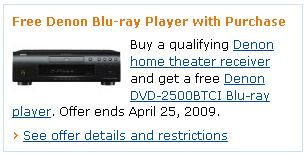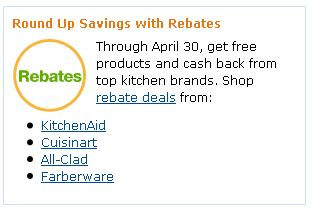I’ve done a lot of stupid things in my life. (Ask my wife—she will eagerly agree!)
One of them was relying one one revenue stream. Well, not entirely on one revenue stream, but one revenue stream for one small part of my business.
Aside from client work, we also run some niche websites that generate revenue primarily from Amazon’s Associate Program. The model I developed was dead simple and produced reliable income, month after month with little ongoing effort.
Until it stopped.
You see, I had unknowingly violated Amazon’s terms of service, and without any sort of warning, they closed my account. No phone call, email, or even a “Dear John” letter. All I got was this little gem when I logged in:

Thanks, Amazon. I love you too. I guess the fact that I’ve been promoting your products for over a decade means nothing. OK, lesson learned. I’ll just pour a nice glass of scotch and reminisce about all the good times we’ve had together.
You’re probably thinking “What did this evil bastard do to get Amazon to close his account?”
Not much, really. I hadn’t done anything nefarious like cookie stuffing; all I did “wrong” was redirect an old domain to my affiliate link.
Evidently, that’s comparable to harboring terrorists, kicking puppies, and eating live babies or something, according to Amazon.

Unfortunately, this is technically my fault for not knowing it was against Amazon’s terms of service, so there isn’t much I can do about it now. Not that it takes the sting out, but I’m not alone on this. Amazon has been closing associates accounts with no notice or warning over stupid things for years.
Oh, and they keep all of the commissions you’ve earned.
One of the more notable cases was when they closed Joel Comm’s account a few years back for something equally ridiculous. He was promoting his own book through an Amazon affiliate link. So far, no problem, but Amazon took issue with the fact that he was offering some of his own products as bonuses to visitors who purchased his book from Amazon.
The result? His account was closed for giving away his own products to encourage people to buy his book, Twitter Power. End of story.
I know that most sane people see how stupid this was on Amazon’s part; there was nothing fraudulent going on and it was driving legitimate sales, in fact, Amazon offers the same type of incentives, but I also know that it only matters what Amazon thinks, so that’s a moot point.


It’s also important to point out that you could have been in 100% compliance yesterday, but in violation today because of an updated terms of service agreement. Some affiliate programs rarely update their terms of service, but a few that we work with update theirs several times a year. A small change that you didn’t know about could put you at risk of losing a solid revenue stream.
And sometimes it may be no fault of your own, like when Amazon canned tens of thousands of affiliates in several states due to new sales tax legislation, when an advertiser decides to end their affiliate program, or an an entire affiliate network decides to shut down.
Any of these things can happen with any revenue stream, such as Google AdSense, Commission Junction, Click Bank, etc.
That’s why it’s so stupid to rely on any single source of revenue. Losing a revenue stream for our niche sites is only a minor hassle because it’s not our main source of income, but if you rely on revenue from your website and it disappears, that can put you in a really tough spot unless you don’t mind selling a kidney to pay your rent. But that will only buy you a few months.
No matter how much ass you’re kicking today, you need to diversify your revenue sources because of what may happen tomorrow. Affiliate programs are fine, especially when you’re just getting started, but there are loads of other options available as well. (And despite Amazon’s epic douchebaggery, I still recommend their affiliate program.)
I recommend using a few different types of revenue streams, and having backups for each ready in case you get canned by one, they go under, change their business model, or new legislation prevents you from utilizing them.
Here are some options to get you started.
Affiliate Programs
- Amazon Associates
- CJ Affiliate
- LinkShare
- Ebay Enterprise Affiliate Network
- ClickBank
- ShareASale
- LinkConnector
- PeerFly
- MaxBounty
- Neverblue
- Clickbooth
Contextual Advertising
Display Advertising
In House Products/Services
It’s hard to go wrong selling your own products and services. It helps retain the strength of your brand, keeps visitors on your website, and fosters a fierce loyalty, as long as your products or services don’t suck. Plus, you get to keep 100% of the profits rather than the meager 2-12% offered by most affiliate programs.







